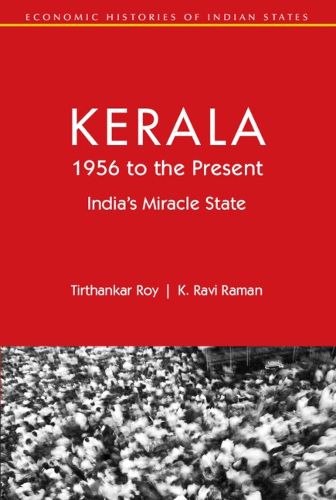Readings Newsletter
Become a Readings Member to make your shopping experience even easier.
Sign in or sign up for free!
You’re not far away from qualifying for FREE standard shipping within Australia
You’ve qualified for FREE standard shipping within Australia
The cart is loading…






'Kerala is different, but not in the way we think.' Economic change in this southern state has fascinated economists. Most studies focused on the state's unusual human development, asked how a poor and economically stagnant state could achieve high levels of education and healthcare and pointed to politics and government policy to answer the question. Little of that scholarship took history seriously. History, this book says, shows that the foundations of human development were laid before the formation of the state and were owed to many factors besides politics. The striking thing about the state is its unusual income growth, which has been faster than most states since the 1990s. The question the authors ask is, 'How could an income-poor state break out of stagnation so dramatically?' The answers consider past globalisation, labour mobility, a legacy of welfare spending, and the positive ways these features interacted since India's economic reforms.
$9.00 standard shipping within Australia
FREE standard shipping within Australia for orders over $100.00
Express & International shipping calculated at checkout
'Kerala is different, but not in the way we think.' Economic change in this southern state has fascinated economists. Most studies focused on the state's unusual human development, asked how a poor and economically stagnant state could achieve high levels of education and healthcare and pointed to politics and government policy to answer the question. Little of that scholarship took history seriously. History, this book says, shows that the foundations of human development were laid before the formation of the state and were owed to many factors besides politics. The striking thing about the state is its unusual income growth, which has been faster than most states since the 1990s. The question the authors ask is, 'How could an income-poor state break out of stagnation so dramatically?' The answers consider past globalisation, labour mobility, a legacy of welfare spending, and the positive ways these features interacted since India's economic reforms.